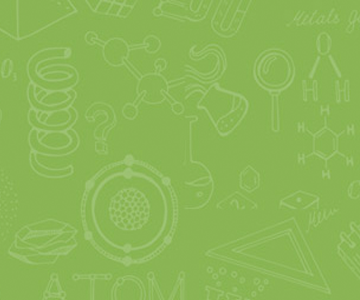Written by Annabel Woolmer, author of The Tickle Fingers Toddler Cookbook: Hands-on fun in the kitchen for 1-4s, published by Ebury.
There are lots of good reasons to include young children in cooking as often as possible. It helps them develop a positive, exploratory attitude to food and eating. It is quality one-on-one time, whilst also getting food on the table. And done right (ie. kept simple and achievable), it’s a lot of fun. However, what is sometimes under appreciated is just how many learning opportunities it provides.
Often seen as small part of the curriculum to be squeezed into an already packed timetable, cooking can actually help teach every aspect of the Early Years Foundation Stage (EYFS) Framework and all core National Curriculum subjects. This isn’t just great for child-care providers and teachers, there’s a lot you can do at home to help your child learn through cooking.
Communication & Language
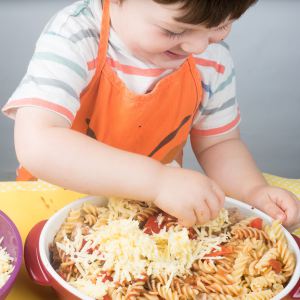 Any adult-child activity can help language development. And as they cook, they have to absorb and follow instructions.
Any adult-child activity can help language development. And as they cook, they have to absorb and follow instructions.
What you can do: Talk to them about what they are doing and afterwards ask them about what they did? Discuss things like colours, texture, smell, taste, shape and where the food/ingredient came from.
Physical Development
Cooking requires constant handling tools and ingredients. This helps develop fine motor skills; critical for learning to write. Cooking is also an opportunity talk about why we eat certain foods and how to stay safe in the kitchen; both specific EYFS requirements and part of the curriculum.
What you can do: Get them to pick up small ingredients with their fingers or use tongs for larger ones. Do lots of moving ingredients from one place to another.
[youtube https://www.youtube.com/watch?v=jnV2c75D64k]
Personal, Social & Emotional Development
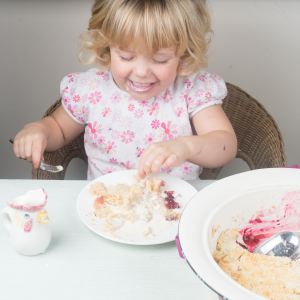 If it goes well, the achievement from making something themselves is great for self-confidence. However, things don’t always go to plan. When this happens, this is an ideal opportunity to help them manage emotions like disappointment, impatience and frustration, all things they are likely to face at school.
If it goes well, the achievement from making something themselves is great for self-confidence. However, things don’t always go to plan. When this happens, this is an ideal opportunity to help them manage emotions like disappointment, impatience and frustration, all things they are likely to face at school.
What you can do: make a big deal of their achievement. Eat what they’ve cooked altogether as a family and after eating, thank them in the same way they might thank you for cooking their meal.
Literacy
There are lots of ways to incorporate literacy in cooking from looking at the names of key ingredients and tasks, to reading the recipe, and even writing or drawing their own.
What you can do: talk about the names of ingredients as they use them, what they begin with (EYFS), and for KS1, get them to identify key words or even read the recipes instructions themselves.
Mathematics
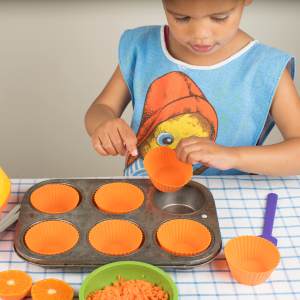
As they cook, they will need to do things like count out ingredients, measure by volume, measure by weight, cut things into halves or quarters, cut or form 2D or 3D shapes and compare sizes and volumes - all great maths practice.
What you can do: make bread or biscuit dough that then involves forming different shapes and dividing it up. If making cakes or muffins, don’t correct how much mixture is in each case. Get them to identify which is smaller or emptier and therefore needs more mix.
Understanding the World, Science & RE
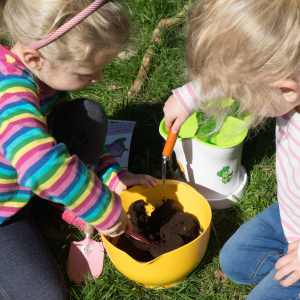 Cooking can support learning about different countries, religions, parts of a plant, materials, reactions and even sustainability.
Cooking can support learning about different countries, religions, parts of a plant, materials, reactions and even sustainability.
What you can do: As they explore ingredients talk about things like where it comes from, how it goes from farm to shop to plate. Visit a farm, Pick Your Own, or Supermarket. Grow simple herbs or salad. While cooking, look at texture, taste, and the effect ingredients have on others. Before they add something that will change the colour, texture or make it rise, talk about what they think will happen.
Expressive Art & Design
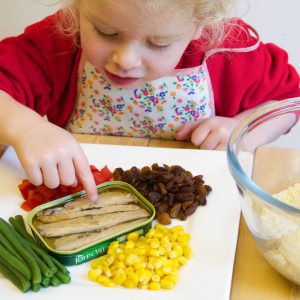 Cooking shouldn’t just be about following instructions; it is a chance for them to get creative.
Cooking shouldn’t just be about following instructions; it is a chance for them to get creative.
What you can do: Where possible, lay out a range of ingredients for them to choose from. Let them present and decorate how they like. Get them to design their own versions of a favourite dish.
Effective Learning
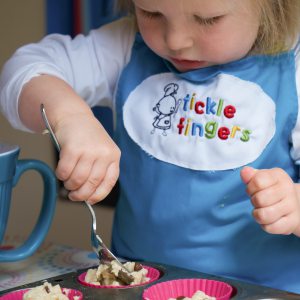 Cooking involves playing and exploring different ingredients, having to focus on a task, problem solving and overcoming challenges, all aspects of Effective Learning in EYFS that stand them in good stead for school.
Cooking involves playing and exploring different ingredients, having to focus on a task, problem solving and overcoming challenges, all aspects of Effective Learning in EYFS that stand them in good stead for school.
What you can do: if your child isn’t the best at focusing on a task, start extra simple. Do a recipe with just a few ingredients and a couple of easy steps and gradually build from there if they show an interest. With any young child, don’t attempt anything that needs a lot of adult help or too many steps - it’ll be much harder for you to keep them engaged.
Remember our ethos when cooking with your child:
- Keep it simple.
- Keep it fun.
- Better they’ve done it themselves than it be perfect.
I hope you find the above tips helpful. Have fun with it and please share your cooking adventures with @Eddie_EdPlace and Tickle Fingers on Twitter (@cookwithtots) or FB (www.facebook.com/EdPlaceEducation) (www.facebook.com/cookwithtoddlers), or Instagram (@cookwithtoddlers).



